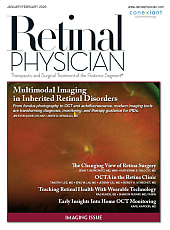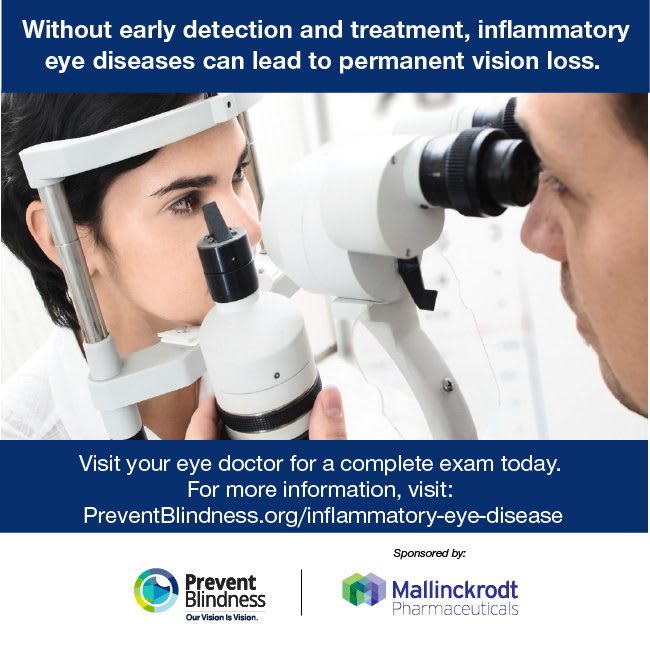Prevent Blindness has declared Oct. 20-26, 2025, as the fifth annual Inflammatory Eye Disease (IED) Week. To raise awareness of IED, Prevent Blindness is offering a variety of free educational IED resources including a dedicated webpage, updated social media graphics, and several downloadable fact sheets in English and Spanish, and videos, the organization said in a press release. IED Awareness Week is supported by a grant from Mallinckrodt Pharmaceuticals.
Most cases of eye inflammation can be successfully treated. However, in rare cases there can be a serious disease present, which is a threat to the eyesight. Early diagnosis and treatment are crucial in saving eyesight.
There are several different types of IEDs, including conjunctivitis, keratitis, thyroid eye disease, and scleritis. Uveitis is the most common form of IED and affects the middle layer of tissue in the eye, called the uvea. The types of condition include anterior uveitis (iritis), intermediate uveitis, and posterior uveitis. Panuveitis affects all layers of the uvea. In some cases where inflammation is recurrent and chronic, damage to the eye can occur, particularly to the retina and optic nerve, and cause permanent vision loss.
The signs and symptoms of uveitis include:
-
Eye redness
-
Eye pain
-
Light sensitivity
-
Blurred vision
-
Dark, floating spots in your field of vision (floaters)
-
Decreased vision
Additionally, Prevent Blindness has several IED episodes in its Focus on Eye Health Expert Series, including:
-
Uveitis and Inflammatory Eye Diseases featuring Steven Yeh, MD, Professor and Stanley Truhlsen Jr., Chair of Ophthalmology, Truhlsen Eye Institute, University of Nebraska Medical Center. Dr. Yeh is also a volunteer on the Prevent Blindness Scientific Committee.
-
Inflammatory Eye Disease with Ann-Marie Lobo-Chan, MD, MS, Associate Professor, Co-Director, Uveitis Service, Director, Uveitis/Medical Retina Fellowship, Department of Ophthalmology and Visual Sciences, University of Illinois College of Medicine.
-
Thyroid Eye Disease and Mental Wellness with Dr. Prem Subramanian, neuro-ophthalmologist with the UCHealth Sue Anschutz-Rodgers Eye Center.
-
Thyroid Eye Disease with Sara T. Wester, MD, FACS, professor of clinical ophthalmology at Bascom Palmer Eye Institute, and TED patient Stephen Bander.
“Inflammatory eye disease encompasses a range of conditions. If left untreated, IEDs can result in significant vision loss,” said Jeff Todd, president and CEO of Prevent Blindness, in the press release. “We urge anyone who has IED symptoms to schedule an appointment with an eye doctor right away.”









